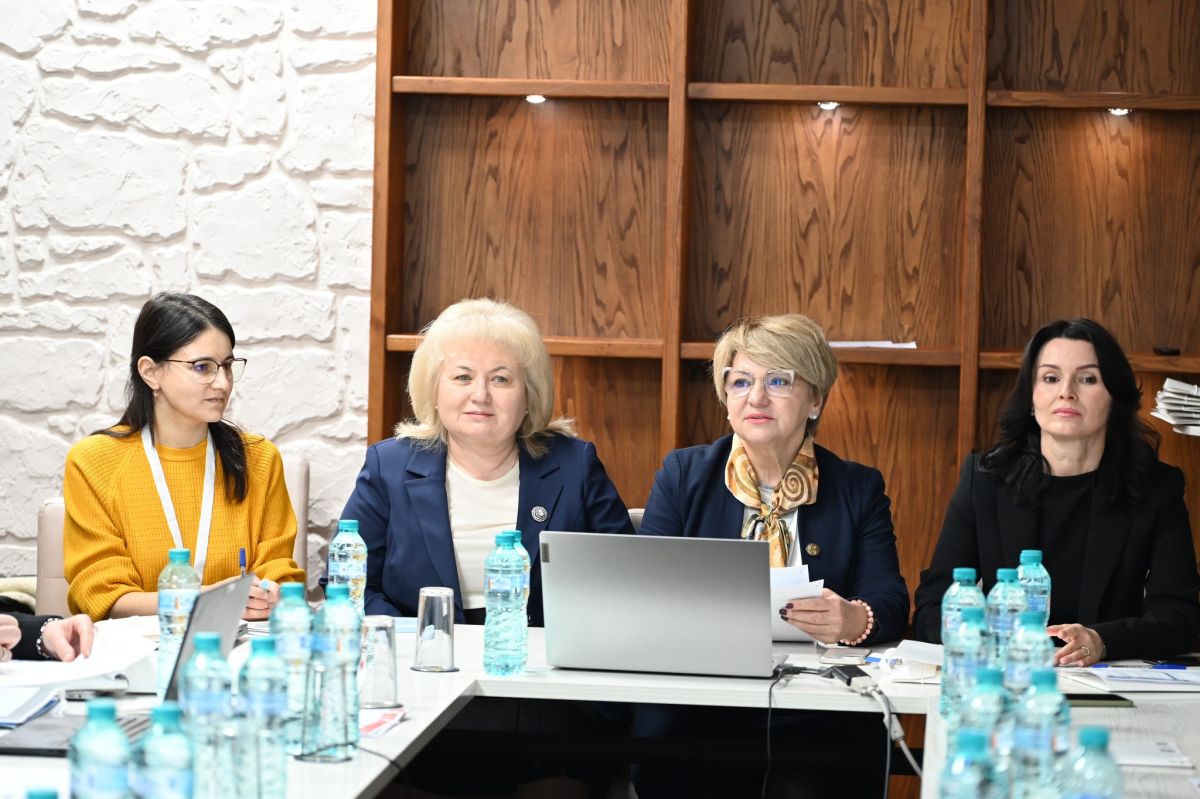Tobacco products use in children or exposure to tobacco smoke may affect their mental health as well
- 677 vues

Despite local, regional, and national prevention strategies, thousands of teenagers develop addiction to tobacco products every year, mainly due to frequent exposure to cigarette smoke. In this context, the representatives of Nicolae Testemitanu State University of Medicine and Pharmacy in partnership with the Society of Pediatrics of the Republic of Moldova initiated a European regional collaboration for tobacco control and smoking cessation.
On February 9 and 10, 2024, members of professional organizations that take care of the health of children and adolescents from the USA, Romania, Turkey, Macedonia, Albania, Kazakhstan, Kyrgyzstan, representatives of the Ministry of Health of the Republic of Moldova (MOH) and the Office of the World Health Organization (WHO) in Moldova met during a workshop in Chisinau.
At the opening of the event, Angela Paraschiv, secretary of state of the MOH, informed the audience about the commitment of the institution she represents to tobacco control and combating its consumption. "The organization of this workshop represents a good initiative for the protection of children against tobacco consumption, one of the main risk factors in deaths caused by non-communicable diseases. At the global level, 8.7 million deaths due to smoking are recorded annually, and at the national level - 5 thousand deaths", said the Secretary of State.
According to a recent nationwide study, 16 percent of teenagers use tobacco and other tobacco products. In this regard, the government approved the National Program for the prevention and control of priority non-communicable diseases for the years 2023-2027, which provides for a 20% reduction in tobacco consumption. Also, a draft amendment to the Law on Tobacco Consumption, to regulate the activities of tobacco industry, is under development. Moreover, the Ministry of Health carries out tobacco consumption monitoring activities throughout the country, promotes actions to raise awareness among the population, including among adolescents, regarding the harm and negative impact of tobacco consumption. An important action is the recent increase in excise duties on tobacco products, as previously it has been shown that a 10 percent increase in taxes reduces consumption by 4-5 percent.
According to First vice-rector Olga Cernetchi, vice-rector for didactic activity at Nicolae Testemitanu University, the impact of tobacco products on children's health is becoming increasingly harmful. If previously we were referring only to somatic pathology, now it also includes the mental health of children and adolescents, manifested by depression, phobias, or other mental illnesses.
 Professor Olga Cernetchi also spoke as an obstetrician-gynecologist, mentioning the fact that recently there are more cases of tobacco addiction among pregnant women, which causes premature births, ectopic pregnancies, or resistance to painkillers. The First vice-rector emphasized that the problem discussed in the workshop is a topical one for the entire humanity, because tobacco smoke is the first drug that affects a person. This happens since childhood, in adolescence, in the environment of colleagues, friends, parents, and often it can cause addiction for the whole life.
Professor Olga Cernetchi also spoke as an obstetrician-gynecologist, mentioning the fact that recently there are more cases of tobacco addiction among pregnant women, which causes premature births, ectopic pregnancies, or resistance to painkillers. The First vice-rector emphasized that the problem discussed in the workshop is a topical one for the entire humanity, because tobacco smoke is the first drug that affects a person. This happens since childhood, in adolescence, in the environment of colleagues, friends, parents, and often it can cause addiction for the whole life.
Daniela Demiscan, representative of the WHO Office in Moldova, noted that this year's edition of the World No Tobacco Day (marked on May 31) has the slogan Be careful, children, teenagers are involved, and this event "will help us prepare a message with concrete actions and steps to combat smoking worldwide"
According to university professor Neli Revenco, president of the Society of Pediatrics of the Republic of Moldova, head of the Department of Pediatrics at Nicolae Testemitanu University, during the workshop, experts addressed current topics related to tobacco prevention and control and the role of pediatricians and professional societies, specifically to combat the negative effects related to children's exposure to tobacco smoke. At the same time, new objectives, and potential responses to common challenges in tobacco control and quitting smoking support were planned and identified. As a result, a reference framework was developed that includes objectives, appropriate structures, and potential results of collaboration in the future, opportunities for education and support in controlling this phenomenon and reducing smoking at the regional level being discussed.
Preluarea informației de pe site-ul USMF „Nicolae Testemițanu” poate fi efectuată doar cu indicarea obligatorie a sursei și a linkului direct accesat pe www.usmf.md.


















Comentarii